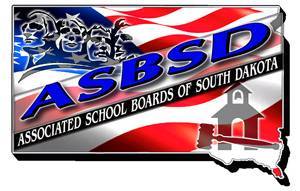NSBA Western Region Director and Mitchell School Board Member Neil Putnam remembers the landmark case’s 60th anniversary.
Thirty years ago, I was on stage with seventeen other graduates from my small school. I suspect most of them, like I, were descendants of homesteaders who settled in the Dakotas with hopes and dreams of making a living from the land and raising a family. I am sure my classmates were not thinking about the sacrifice our families made many generations before us, to insure we all had an equal chance for an education.
Back up another 30 years to May 17, 1954, the United States Supreme Court in Brown v. Board of Education affirmed that all children have an equal opportunity to attend any school.
The Warren Court unanimously ruled that “separate educational facilities are inherently unequal” and that segregation of public schools violates the Fourteenth Amendment. The case started when Oliver Brown was denied admission of his eight-year old daughter to attend a neighborhood school in Topeka, Kansas.
Why?
The school was only for white students, so his daughter was bussed to a school for black students. Brown, along with other parents would eventually challenge Kansas law that permitted segregation of elementary schools. The lower court ruled in favor of the district; then Brown would join a class action suit and appeal to the Supreme Court.
Simply, the appellants wanted an equal opportunity for their children.
The National School Board Association Board of Directors passed a resolution recognizing Brown. I am proud to be part of NSBA’s efforts, but as a South Dakotan I was feeling inadequate to fully grasp the significance of this case. I have not been exposed to segregation and as a school board member I can’t fathom denying access to a student because of their race, or any other reason.
In fact, the South Dakota State Constitution uses the words, “equally open to all.” Therefore, to help me fully comprehend the legacy of this case, I reached out to two friends and fellow school board members, one from Topeka, Kansas, the other from Laurel, Mississippi.
My friend from Kansas wrote, “As a life-long Kansan and the first African-American to serve as President of the Kansas Association of School Boards, I am overjoyed! I acknowledge, had it not been for Justice Thurgood Marshall, the plaintiffs and others who were willing to take a stand for what was the obvious. I would not be in this position today, nor would I have enjoyed the professional and personal successes I have known.”
I asked what he thinks is the impact of Brown v. Board of Education. “Children were impacted because this case clearly stated that an equal access to a quality education did not exist in facilities that were separate, yet considered equal. In essence, they were not truly equal, only separate,” he responded.
My friend from Mississippi agreed that schools, particularly in the south, were “separate but definitely not equal.” She reminded me that the court considered academic fairness and the effects segregation had on student performance.
Of the decision, she said, “It changed the way of thinking.”
School board members are in the ‘thinking’ business. School boards deal with curriculum, resources, programming, educators, and facilities which are necessary to help students to think critically, objectively and effectively.
Brown and subsequent decisions changed the conversation and mindset that public education is available to ALL children regardless of their background or where they live.
Perhaps it is coincidence that three school board members – who served as Presidents of our state school board associations and whose families come from agrarian beginnings; Kansas Exodusters, Mississippi Sharecroppers, and Dakota Homesteaders – would be having a conversation about the 60th Anniversary of Brown v. Board of Education.
I think, rather, that is the legacy of the landmark case.
All school board members, educators, parents and citizens working together to insure all students, regardless of their abilities, circumstances and means, can attend any public school.
Now, thirty years later from the time I was handed a diploma, I am recognizing those who toiled and sacrificed for my education, but, moreover, commemorating those who fought for the right I took for granted. Thurgood Marshall said, “Sometimes history takes things into its own hands.”
Please join me in embracing the hand of history and take the journey with our children as they enter America’s future.
